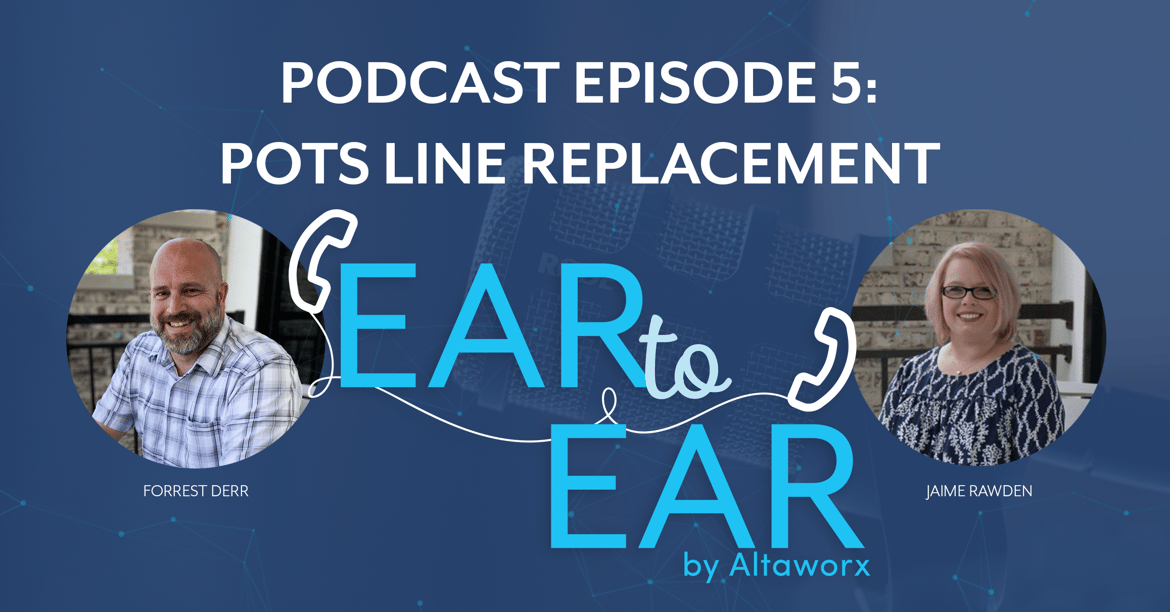Ear To Ear Podcast | EPISODE 5: POTS Line Replacement
We're back with another Ear to Ear by Altaworx podcast.
By Altaworx Marketing
Share
Dial into episode 5 where Forrest and Jaime Rawden VP of Product discuss how she started in this industry and the importance of updating your technology, specifically POTS Line Replacement.
Highlights:
- What is a POTS Line
- Benefits of replacing POTS Lines
- What is IoT
- Benefits of a Private Network
Learn more: www.altaworx.com
Contact us: revops@altaworx.com
Connect with Jaime Rawden on LinkedIn
Connect with Forrest Derr on LinkedIn
No video selected
Select a video type in the sidebar.































